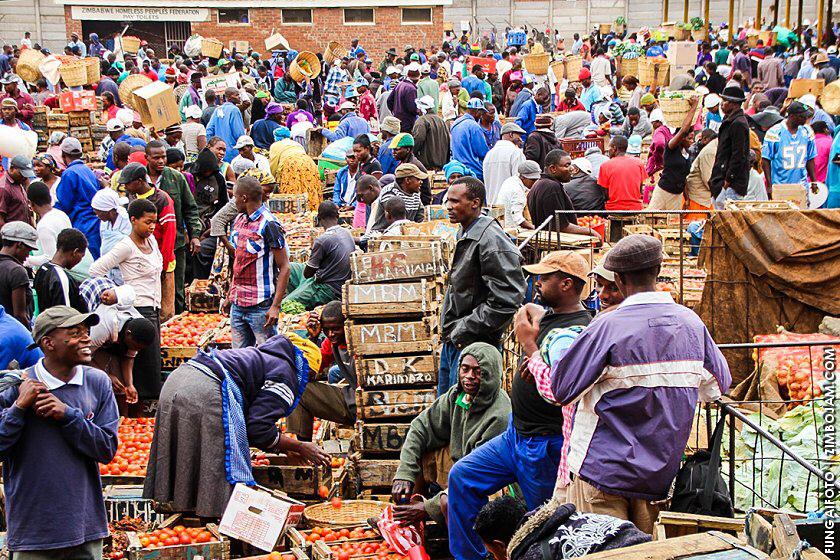By Emmanuel Kafe
Before the crack of dawn, men and women are already sweating away at Mbare Musika, the fresh produce market synonymous with one of Harare’s most populous suburbs.

Traders brave the morning chill to prepare for commerce in the scorching heat of day. Time is of the essence. There is no time for irrelevant chit-chat. Everyone moves fast. Everything moves fast. It is no Wall Street. The dirt and grime are pervasive. The stench is offensive to the sensitive nostril.
But like Wall Street, the noise of hagglers rules. Like Wall Street, quick thinking and a keen awareness of market trends makes or breaks lives. Like Wall Street, if you snooze you lose.
And like Wall Street, at Mbare Musika money never sleeps.
Established in 1907, goods worth more than $3 million change hands at Mbare every month.
Some researchers say 17 000 people do business at Mbare Musika every day. It costs $10 dollars a day to sell things here. Farmers, mainly from the three Mashonaland provinces, Manicaland, Midlands and Masvingo, negotiate prices and quantities with middlemen and stall-holders.
Deals sealed, fruits and vegetables are off-loaded from trucks and money changes hands – or is increasingly usual these days, transferred on mobile phones. It is not just about fruits and vegetables. You can find poultry here, as well as leather products, factory-made goods, clothing, herbs and medicines, and arts and crafts.
Mbare ticks all year round, with public holidays not a time to rest but rather a peak business period.
However, the farmers who supply Harare with at least a third of its fresh produce are at the mercy of middlemen and traders who pay low prices and then put high mark-ups.
A network of wholesale buyers set prices and snap up the produce. Farmers do not own any of the tables or stalls. Since their stock in trade is a perishable product, and they live outside Harare, they are forced to sell and return to their homes before incurring accommodation costs by staying the city any longer than they have to.
Patrick Mapfumo, a cabbage farmer who delivers to Mbare just about every week, feels he and his colleagues are often cheated and wants Government to invest in markets development.
“Policy makers should devote resources to local market development where the country’s resilience is well expressed,” he says.
A good example of private development in this regards is Aspindale Farmers Market at the junction of Kambuzuma and High Glen roads in Harare, which will primarily service Mufakose, Budiriro and Kambuzuma.
Old Mutual Zimbabwe will soon open its huge mall in central Harare, which will also have space for fresh produce.
These developments are driven by the realisation that up to 50 percent of fresh produce destined for Mbare goes to waste because of poor facilities.
Old Mutual Zimbabwe CEO Mr Jonas Mashosho says their mall will have around 2 000 square metres of refrigeration space.
It is something that the City of Harare, which oversees Mbare Musika, has woken up to. City spokesperson Mr Michael Chideme says, “The city council is constantly refurbishing trading areas including the Mbare agricultural market so that traders work in a conducive environment.”
Zimbabwe Farmers Union executive director, Mr Paul Zakariya, points out that markets are a key component of the agriculture value chain.
“The Governmnent should provide policies that are environment-friendly for local markets as this will help in efficiency and profit that will help in swift payment of smallholder farmers for their produce at these markets,” he says. About 70 percent of Zimbabweans are employed – directly and indirectly – in agriculture, and in 2017 the sector contributed 10,46 percent of GDP and 60 percent of raw materials manufacturing.
A 2013 World Bank report states that Africa has potential to create a trillion-dollar food market by 2030.
The catch is capital, energy, technology, irrigation and market development. Sunday Mail.






